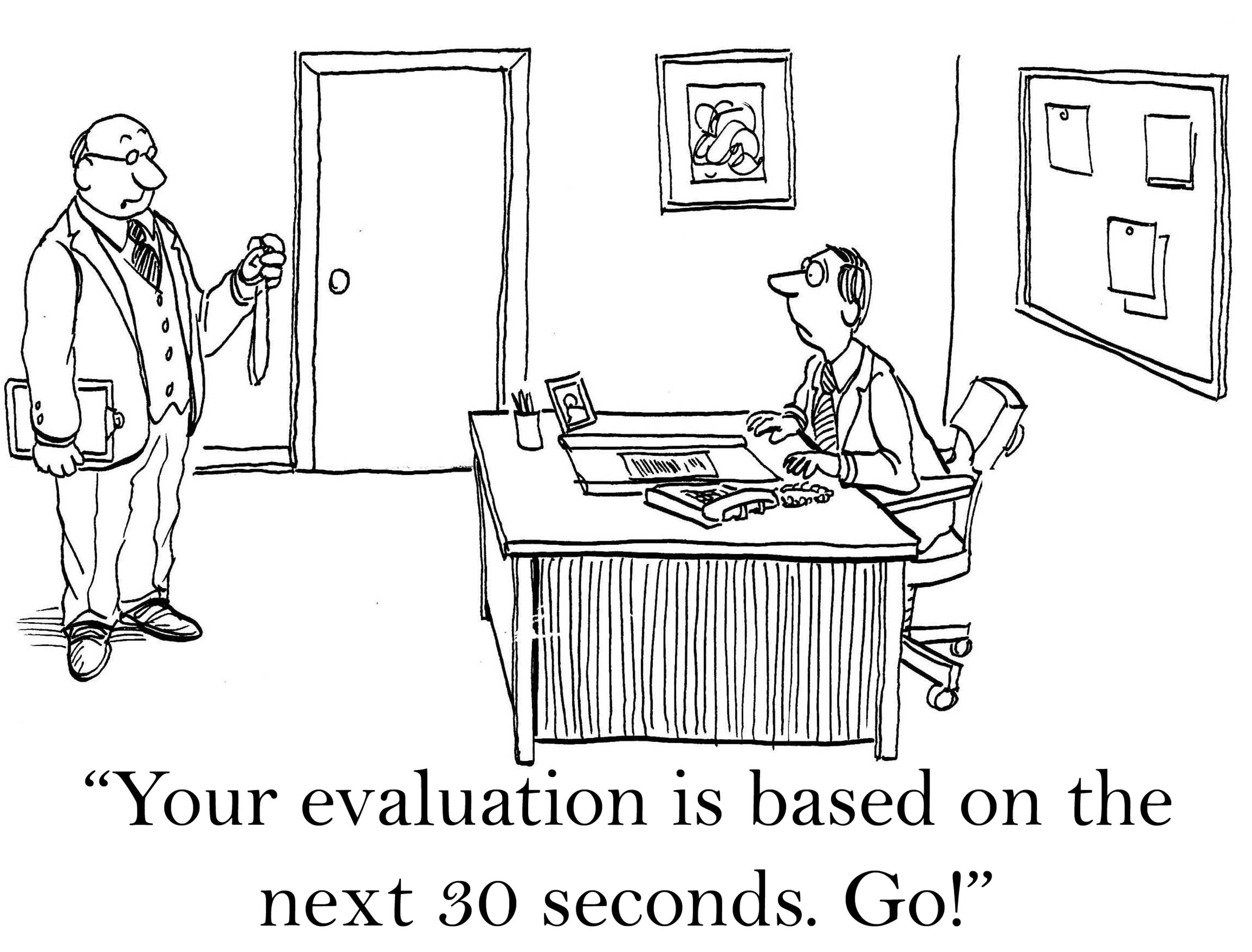
Say Good-bye to the Performance Reviews You Grew Up With
Say Good-bye to the Performance Reviews You Grew Up With
Say Good-bye to the Performance Reviews
You Grew Up With
If you’ve been in the working world for at least five years, this is undoubtedly a familiar scene: Once or twice a year, you sit down with your boss to have “the talk” about your performance. You go over your strengths and weaknesses, high points and low from the previous year, and leave with a rating that captures the year — and essentially your entire worth as an employee — in a single “grade.”

As McKinsey notes, both managers and staff have long regarded this traditional model of performance management as altogether unhelpful: a huge time-suck, subjective to a fault, and demotivating—exactly opposite of the desired effect of driving improved performance.[1] Even five years ago, one Deloitte survey found that nearly six in 10 executives acknowledged that their current performance management approach was not driving employee engagement or high performance.[2]
Businesses and the role of the modern-day employee have evolved, requiring employees with “deeper expertise, more independent judgment, and better problem-solving skills” who are “creating value in ways that industrial-era performance management systems struggle to identify.”[3] For years, despite nearly universal frustration with this outdated model, companies stuck with it—presumably because they hadn’t figured out what could take its place. Finally, those days seem to be in the rear-view mirror.
A 2017 Deloitte study of human capital trends found that nearly eight in 10 executives rated the redesign of performance management as a high priority.[4] More than 70 percent indicated they were already in the process of changing the performance management process in their organizations.[5]
Companies such as Deloitte, GE, and Microsoft have revolutionized their processes in favor of more agile systems that enable continual feedback and coaching.[6][7] As McKinsey notes, many companies are also relying on systems that automate real-time analysis to collect more objective performance data.[8] Artificial intelligence has an exciting role to play as well, with Forbes pointing out that “enabling the drive towards an ongoing, organic assessment culture is a positive step that is already being taken today.”[9]
So where do you start? Marcus Buckingham, recognized as one of the world’s leading thinkers on talent, reminds us that performance acceleration — getting more performance from team members — and performance measurement—reliably measuring the performance of every single team member — are two very different challenges.[10] He asserts that trying to solve both with the same tool — be it ratings, goals, or competencies — results in neither being handled well.
If your company is still using the same method of performance management from 5+ years ago, chances are good it’s a major pain point for managers and employees alike — and a wholly ineffective one, at that. We can help. Let’s talk.
[1]Boris Ewenstein, Bryan Hancock, and Asmus Komm, “Ahead of the Curve: The Future of Performance Management,” May 2016, McKinsey.com. https://www.mckinsey.com/business-functions/organization/our-insights/ahead-of-the-curve-the-future-of-performance-management
[2]Stacia Garr, Andrew Liakopoulos, and Lisa Barry, “Performance management is broken,” March 2014. https://www2.deloitte.com/insights/us/en/focus/human-capital-trends/2014/hc-trends-2014-performance-management.html
[3]Boris Ewenstein, Bryan Hancock, and Asmus Komm, “Ahead of the Curve: The Future of Performance Management,” May 2016, McKinsey.com. https://www.mckinsey.com/business-functions/organization/our-insights/ahead-of-the-curve-the-future-of-performance-management
[4]Josh Bersin, Bill Pelster, Jeff Schwartz, and Bernard van der Vyver, “Rewriting the rules for the digital age,” 2017 Deloitte Global Human Capital Trends. https://www2.deloitte.com/content/dam/Deloitte/global/Documents/About-Deloitte/central-europe/ce-global-human-capital-trends.pdf
[5]Josh Bersin, Bill Pelster, Jeff Schwartz, and Bernard van der Vyver, “Rewriting the rules for the digital age,” 2017 Deloitte Global Human Capital Trends. https://www2.deloitte.com/content/dam/Deloitte/global/Documents/About-Deloitte/central-europe/ce-global-human-capital-trends.pdf
[6]Marcus Buckingham and Ashley Goodall, “Reinventing Performance Management,” Harvard Business Review, April 2015. https://hbr.org/2015/04/reinventing-performance-management
[7]Boris Ewenstein, Bryan Hancock, and Asmus Komm, “Ahead of the Curve: The Future of Performance Management,” May 2016, McKinsey.com. https://www.mckinsey.com/business-functions/organization/our-insights/ahead-of-the-curve-the-future-of-performance-management
[8]Boris Ewenstein, Bryan Hancock, and Asmus Komm, “Ahead of the Curve: The Future of Performance Management,” May 2016, McKinsey.com. https://www.mckinsey.com/business-functions/organization/our-insights/ahead-of-the-curve-the-future-of-performance-management
[9]Bernard Marr, “The Future of Performance Management: How AI and Big Data Combat Workplace Bias,” Forbes.com, January 17, 2017. https://www.forbes.com/sites/bernardmarr/2017/01/17/the-future-of-performance-management-how-ai-and-big-data-combat-workplace-bias/#18c1b40d4a0d
[10]Marcus Buckingham, “Performance Management is Two Things,” November 2016. https://www.marcusbuckingham.com/rwtb/performance-management-is-two-things/